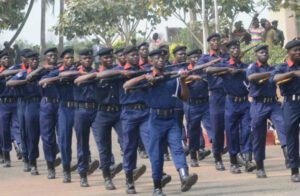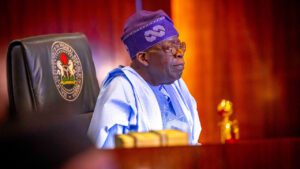SMEDAN seeks collaboration to address barriers to socio-economic inclusion
The Small and Medium Enterprises Development Agency of Nigeria (SMEDAN) has sought stakeholders’ collaboration on ways to remove the obstacles that prevent Persons With Disabilities from participating fully and equally in society.
The Chief Executive Director, SMEDAN, Dr Olawale Fasanya, said this at a two-day capacity building programme on Grant and Growth Support for Business Membership Organisation (BMOs) and Trade Associations, organised by the agency on Monday in Lagos.
The event seeks to ensure economic inclusion and empowerment of people with special abilities, with the ultimate goal of delivering to them the opportunities for economic self-reliance to boost Gross Domestic Product.
Fasanya said, “The challenge before us now is how to address the barriers to socio-economic inclusion of people with special abilities.
“SMEDAN is an Agency of the Federal Government saddled with responsibility of nurturing and growing Nano, Micro, Small and Medium Enterprises and supporting business membership organisation and trade associations in building their capacity to collectively tackle the common challenges encountered by their members especially in this post fuel subsidy era.
“The challenges encountered are in the areas of achieving standards, meeting regulatory requirements, appropriate packaging and labeling, access to finance, access to market and advocating the closure of infrastructure gaps for competitiveness.
“SMEDAN is working assiduously towards addressing the barriers to socio-economic inclusion through multi-pronged approach: appropriate policy and institutional reforms vide the National Policy on MSMEs; organising capacity building programmes such as provision/facilitation of access to finance.
“We also believe that the public sector and private sector as well as the society at large have great role to play in the area of addressing the infrastructural, social and attitudinal barriers to economic inclusion and empowerment of people with special abilities.’’
According to him, the World Health Organisation, in 2018, reported that 29 million of the 195 million people comprising Nigeria’s population were living with disabilities.
He said data from the 2018 Nigeria demographic and health survey revealed that an estimated seven per cent of household member above the age of five (as well as nine per cent of those 60 years or older) have some level of difficulty in at least one functional domain: seeing, hearing, communication, cognition, walking or self-care; and one domain.
“Referencing the above WHO statistics, the World Bank’s Open Knowledge Repository (OKR) Report on “Disability Inclusion in Nigeria: A Rapid Assessment,” reckons that these estimated rates, while significant, are probably even higher because current available data likely underestimate the prevalence of disabilities in Nigeria.
“The findings of the World Bank Report indicate that persons with disabilities (or special abilities) lack access to basic services and that attitudinal barriers represent a major impediment to their socio-economic inclusion.
“According to the report, inclusive policies are either nonexistent, weak, or inadequately implemented and therefore there is urgent need to improve the current socio-economic situation of persons with Nigeria,’’ he said.
Fasanya noted that there were many different barriers that people with disabilities face, adding that they vary depending on the type of disability and the context in which the person lives.
He said lack of access to education and skills training had placed them at a disadvantage in the job market and had held them back from being entrepreneurs.
Fasanya said the literacy rate for people with special disabilities in Nigeria stood at 36 per cent compared to 64 per cent for people without disabilities, thereby leaving a yawning disparity.
He added that institutional barriers which included many laws, policies, strategies or practices discriminated against people with special abilities.
“Researchers have also reported that approximately nine out of 10 people with special abilities in Nigeria live below the poverty line and that disability can be both cause and consequence of poverty.
“Disability can reduce access to education, employment, opportunities and resources, thereby escalating poverty.
“The WHO (2011) estimates that more women have a disability globally than men (19.2 per cent of women compared to12 per cent of men) due to combination of exclusion from education and healthcare, poor nutrition and Violence Against Women and Girls.’’
Recall that the first tranche of this programme held in Calabar in June was designed purely for women-led Business Membership Organisations in partnership with the Association of Nigeria Women Business Network.
This second tranche was held in Lagos and Katsina for people living with disabilities (otherwise known as people with special abilities).
Also, the third tranche is holding simultaneously in Lagos and Osun, to end on Oct. 17.




